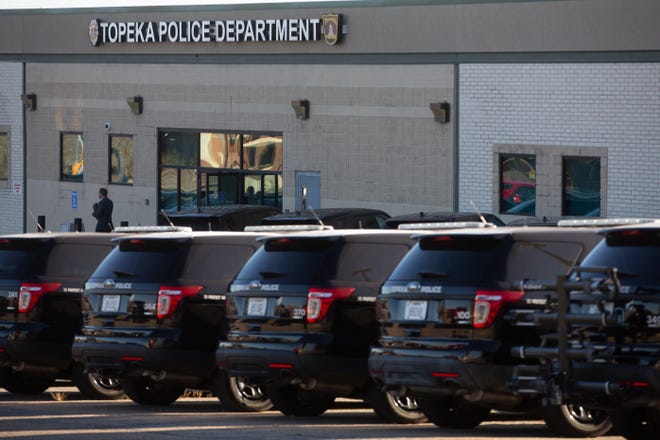Topeka City Government Opts for Self-Insurance, Foregoing Vehicle Coverage
Topeka city government is making a financial move by choosing to forgo traditional vehicle insurance and instead self-insure its fleet of vehicles. According to City Attorney Amanda Stanley, the switch is expected to save the city approximately $250,000 per year. This decision follows a trend of alternating between carrying vehicle insurance and self-insuring, a practice the city has utilized in the past.
Mandatory vehicle insurance is a legal requirement for all drivers in Kansas. However, city governments are not held to the same standard.
“Under the city’s vehicle policy, the city’s self-insured retention, commonly known as a deductible, was $500,000,” Stanley said. “Based on past claims, the city was already paying for the cost of settled vehicle claims without insurance kicking in, because the settlement values were below the self-insured retention level.”
Additionally, the city was paying insurance premiums, and paying for a third-party administrator to process vehicle claims, according to Stanley.

Patrol vehicles parked outside Topeka Police Department headquarters. The city will self-insure its fleet, including police vehicles.
Historical Context
Topeka’s history with vehicle insurance has been varied. Stanley noted that the city has, over time, switched between holding vehicle insurance and leveraging its self-insured option. The city of Lawrence also self-insures its vehicles.
Financial Reasoning
The primary driver behind Topeka’s decision is cost savings. Stanley explained that the city was already paying for settlement costs that didn’t trigger insurance payouts, due to the settlement amounts being lower than the deductible. The city was also incurring costs for insurance premiums and a third-party administrator to process claims. Returning to self-insured status is projected to save approximately $250,000 annually.
Legal Framework
The Kansas Tort Claims Act places responsibility on cities and counties for torts, or civil wrongs, committed by their employees during their employment, like motor vehicle claims. State law allows cities and counties to self-insure for these claims. According to Stanley, “The public policy behind this is that unlike a private individual, a municipality cannot declare bankruptcy or be insolvent to avoid a judgment.” She added that the law mandates the city have sufficient funds to meet claim obligations.
The city maintains specific funds in its budget to cover potential claims.
City Council Involvement
The move to self-insure is included in the agenda packet for the Topeka City Council’s meeting on Tuesday at 6 p.m. at 214 S.E. 8th. The council is being asked to have the city attorney’s office, rather than the risk management office, handle motor vehicle claims against the city. Approval requires five out of the nine council members’ votes, with the mayor holding veto power. Stanley stated the need for council action is for a “necessary code cleanup to accomplish this ultimate savings to the taxpayer.”
Stanley said, “As the city will again be self-insured, all claims need to be processed through the city attorney’s office, so that liability can be consistently analyzed, and claims legally resolved under the Kansas Tort Claims Act.”
Risk management will work with the legal department on claim processing, alongside its duties with human resources.


